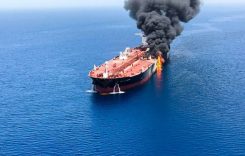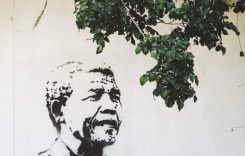The former president had imposed a state of emergency in the country in November 2007 and suspended the Constitution.
This is a first in a country where the army is often seen as immune from prosecution. Former Pakistani President Pervez Musharraf, in exile in Dubai, was sentenced to death in absentia on Tuesday 17 December for “high treason”, public radio announced.
The conviction of this central figure in Pakistan’s recent history relates to “the decision he took on 3 November 2007”, i.e. the imposition of a state of emergency in the country, his lawyer, Akhtar Shah, told AFP. The former president “did nothing wrong,” he said.
A senior Pakistani magistrate confirmed the sentence and the charge to AFP.
Pervez Musharraf then invoked the defence of national unity against Islamist terrorism and the opposition of the Supreme Court, which had to rule on the legality of his re-election a month earlier, to suspend the Constitution.
“Terrorism and extremism are at their height,” he said, justifying the general’s attack on “judicial activism. This very unpopular measure, lifted in December 2007, eventually caused it to fall less than a year later.
“He had immunity. He was the Chief of Staff, he was the President of Pakistan and the Supreme Commander of the Armed Forces,” his lawyer Akhtar Shah observed on Tuesday, adding that Pervez Musharraf, exiled and “sick”, “wanted to return to Pakistan to testify” but was waiting for “his safety to be guaranteed”.
“A great impact on democratic development”
Talat Masood, a retired general and security analyst, described as “extraordinary” the fact that justice has condemned a former head of state and military, when they are considered all-powerful in Pakistan, governed by the army almost half of its 72-year history.
This decision will have “a great impact on Pakistan’s democratic development”, he said, when questioned by the AFP.
Now 76 years old, General Musharraf came to power by a bloodless coup in October 1999, then proclaimed himself president in June 2001, before winning a controversial referendum in April 2002. He remained at the head of Pakistan until 2008.
Under the reign of this outspoken strategist, admirer of Napoleon Bonaparte and cigar lover, Pakistan had seen its economic growth take off, its middle class develop, the media liberalize and the army play the peace card against rival India.
“Dictatorial” takeover
But his opponents have consistently denounced his “dictatorial” control over power, the “illegal” dismissal of Supreme Court judges who opposed him, the establishment of a state of emergency and the bloody assault on heavily armed Islamists who took refuge in the Red Mosque in Islamabad in summer 2007.
In August 2008, at the height of his unpopularity and in the face of growing pressure from the opposition and justice, this nationalist resigned and then began a luxurious voluntary exile between London and Dubai.
Returning to Pakistan in March 2013 to participate in the elections, his political ambitions had been shattered by multiple lawsuits. He left the country again in March 2016 for medical care in Dubai, promising to come back and face his judges. Which he hasn’t done so far.
In August 2017, Pakistani courts declared him a “fugitive” in the murder trial of Benazir Bhutto, who was then his political rival. It also ordered the confiscation of the property of the former military leader, who had been charged in 2013 in this case and is now the sole suspect.
Benazir Bhutto, twice elected Prime Minister of Pakistan, and the first woman of the contemporary era to lead a Muslim country, was murdered in a suicide attack in Rawalpindi on 27 December 2007.
“Democracy is the best revenge. Joye (Long live) Bhutto,” tweeted his son Bilawal Bhutto Zardari, who leads the Pakistan People’s Party (PPP), a major opposition party.
“This verdict will put an end to violations of the Constitution in the future,” said Ahsan Iqbal, an official of the Pakistan Muslim League (PML), the main opposition group, whose leader Nawaz Sharif had been ousted from power by Musharraf during his coup in 1999.










